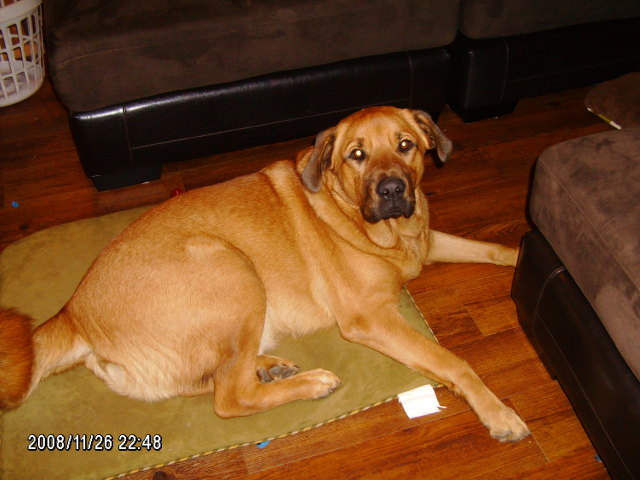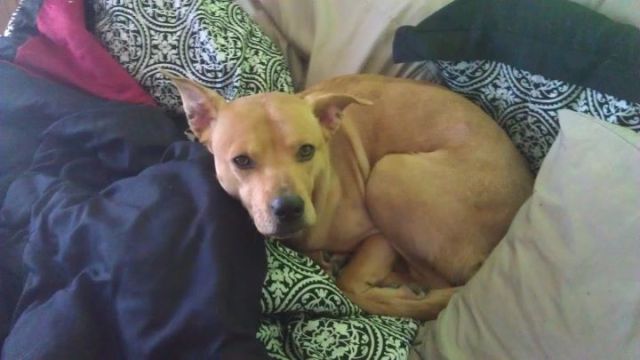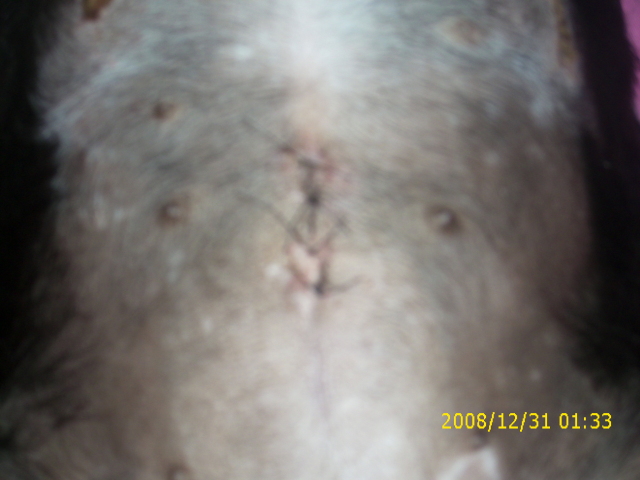QuestionHi, I hope you can help...
One of my two, 4 year old, male dachshunds seems to have a problem controlling his bladder. If he isn't frequently let-out to go potty throughout the day we typically will come home to an accident. Sometimes he does it when we're home because he never learned to signal his needs with a bark or scracthing at the door when we were training him as a puppy. His brother has no problem with it but for some reason it didn't click with him. He also tends to drink a lot of the water in their bowl. And we have already rationed the water in an effort to curb his accidents. I do not think this is a domination-type behavior because he urinates in obscure, out-of-the-way places (i.e., in corners or in between the end table and the sofa) Also, he puts his tail between his legs and lowers his ears when we find the accident which indicates to me that he knows he is wrong. We've had his urine tested and he did have an infection but this behavior continued despite getting the infection treated. Additionally, we found out that most dogs will have slight traces of bacteria in their urine and that it is perfectly normal....after all, he can't spend his entier life on antibiotics.
Do you know why he is doing this and what we can do stop it? Any insight will be so very much appreciated.
AnswerHi Kelly,
The fact you say this dog drinks more than your other dog might be a symptom of diabetes.
It's also possible that he wasn't on the medication for the bladder infection long enough, and the infection was never completely wiped out.
In dogs, persistent urinary tract infections sometimes occur when a difficult bacterial infection is not treated long enough with antibiotics or has found a protected spot in the urinary tract where it is hard for antibiotics to reach it. In this case, there really isn't a time when the dog is free from infection, so the urinary tract infection is persistent, not recurrent. In this situation, identifying the bacteria through culturing the urine and then testing to see which antibiotic will work against it and using it long enough should work to stop the problem. It may take two or three months of antibiotics in some cases.
More commonly, the problem is due to recurrent urinary tract infection that is occurring because there is something wrong with the normal mechanisms that prevent urinary tract infection. This can be a problem with anatomical abnormalities of structures of the urinary tract that allow urine pooling or urine retention. It can occur when dogs are unable to fully empty their bladder due to neurologic problems or painful conditions. It can occur when immune system disorders or hormonal diseases such as hyperadrenocorticism or diabetes.
Most veterinary general practitioners can do the work-up part of diagnosing a urinary tract problem, but they don't do it often enough to be really experienced at identifying the more subtle problems of chronic bacterial infections. If this has been a recurring condition for your dog, seeing or a veterinary internal medicine specialist could be very helpful in getting this treated.
Talk to your vet a about adding a urinary acidifier to this dog's diet. They can be helpful in the treatment of specific urinary tract disorders.
Once a medical cause is ruled out, then it's safe to consider this a house training issue. Dachshunds are notoriously hard to house train.
The way to stop the accidents is for you to be extremely diligent in supervising the dog, and taking him outside frequently, and crating him when he can't be monitored. Just like one does when they have a puppy that's not yet trained.
There is a product called a "Belly Band" that you can either buy or make yourself, and use it as a house training training aid. Belly Bands for male dogs wrap around your dog's belly to absorb wetting accidents. You can see it here:
http://www.dog-breeds.net/dog_diaper_belly_band.htm
This site has a "Boomerang belly band" that's made especially for Dachshunds, scroll way down to see it:
http://www.decotogs.com/bellybands/bellybandinfo.htm
If you are handy at sewing you can make your own belly band. All you need are your dog's measurements around his tummy area, some flannel fabric and some wide velcro strips.
For ready made belly bands search for them on Google. They are also available on e-bay, usually listed under dog clothing.
Best of luck,
Patti

 ideas of what breed dog this is?
Question
dog dog
i was wondering if anyone
ideas of what breed dog this is?
Question
dog dog
i was wondering if anyone
 Mini-Daschund Question
Question
Baby
I got a rescus mini about 6 years ago. &n
Mini-Daschund Question
Question
Baby
I got a rescus mini about 6 years ago. &n
 mouthing; pawing, wont drop it
Question
My puppy Trigger
I have a 10 month old LARGE (
mouthing; pawing, wont drop it
Question
My puppy Trigger
I have a 10 month old LARGE (
 why now?
Question
my dog
I have a 2 year old dog, that mo
why now?
Question
my dog
I have a 2 year old dog, that mo
 I want to know how to remove my dogs spay stitches and the right way.
Question
this is the area that
I need to know how to r
I want to know how to remove my dogs spay stitches and the right way.
Question
this is the area that
I need to know how to r